
Experts discussed advancements in dermatology treatment while emphasizing the value of in-person collaboration and professional rejuvenation at the American Academy of Dermatology 2025 conference.

Experts discussed advancements in dermatology treatment while emphasizing the value of in-person collaboration and professional rejuvenation at the American Academy of Dermatology 2025 conference.

Areas for further research suggested by Xin Hu, PhD, MSPH, include examining differences in telemental health uptake between new and existing patients and exploring how these differences vary across demographic subgroups.

In an interview with Brittany Craiglow, MD, FAAD, dermatologist at Dermatology Physicians of Connecticut in Fairfield, she advocates for combination therapies using baricitinib to treat pediatric alopecia areata and highlights the need for personalized treatment approaches based on Janus kinase inhibitor responses.

Lawrence F. Eichenfield, MD, FAAD, from Rady Children's Hospital and UC San Diego School of Medicine, highlighted the effectiveness of ruxolitinib cream as a nonsteroidal topical treatment for atopic dermatitis, its potential to reduce the need for systemic therapies, and the significant role of the skin microbiome in disease management.
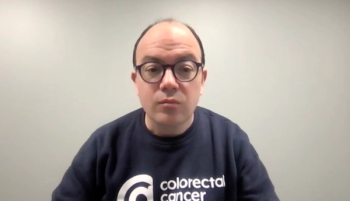
Michael Sapienza, CEO of the Colorectal Cancer Alliance, discusses ways that physicians can support patients through their colorectal cancer journey.

Priscilla Tsondai, MD, MPH, breaks down top care gaps as opportunities for care improvement.

Look ahead to this year's Muscular Dystrophy Association (MDA) meeting, which will feature discussions on the latest gene therapies, clinical trial data, policy considerations, and more in the realm of neuromuscular disease.

Katrina Ortblad, ScD, MPH, Fred Hutch Cancer Center, collaborates with researchers from the Kenya Medical Research Institute to design and test novel delivery models for HIV services.

Lynae Darbes, PhD, presented research on the effectiveness of a home-based intervention for HIV prevention among couples living in Kenya.

New data from the MK-8591A-051 and MK-8591A-052 trials, both investigating the efficacy and safety of 100-mg doravirine and 0.25-mg islatravir as a once-daily 2-drug regimen for virologically suppressed people living with HIV-1, were presented today by Amy Colson, MD, MPH.

Artificial intelligence (AI) is emerging as a tool that can improve patient outcomes and provider care efficiency, says Douglas Flora, MD, FACCC, of St. Elizabeth Healthcare.

Advancing technologies have transformed the detection of heart disease and, in turn, streamlined medical processes and relieved burden on health care systems.

Molly Dean, MSW, policy advisor at Siftwell, discusses how states have encouraged managed care entities to invest in local communities, build partnerships with nonprofits, and support social determinants of health initiatives.

Xin Hu, PhD, MSPH, hypothesizes that these telemental health disparities could be driven by language barriers, historical mistrust, and systemic challenges.

Bridgette J. Picou, LVN, ACLPN, presented research on the lived experiences of women living with HIV and going through menopause on Tuesday, during the mini symposia, “Hot Topic: Menopause and HIV.”

Early diagnosis and prompt antiretroviral therapy initiation are critical for children due to the rapid progression of HIV in infants, explains Priscilla Tsondai, MD, MPH, and unlike adults they require age-appropriate formulations, caregiver support, and strategies to ensure adherence.

To reduce care disparities and prevent them from exacerbating among people living with HIV who have long COVID, education and user-friendly diagnostic methods are key.

This research investigated averted hospitalizations in Oregon and Washington, which had greater than 75% uptake of at least 1 dose of an mRNA-based COVID vaccine.

Medication-assisted treatment is an excellent approach to managing addiction and related emotional symptoms, Rachel Rohaidy, MD, of Miami Neuroscience Institute with Baptist Health, explains.
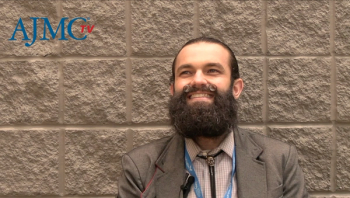
Steven Daniel Daveluy, MD, FAAD, advocates for dermatologists to adopt cultural humility, engage in continuous education, and navigate ethical considerations to provide equitable and supportive care to LGBTQ patients.
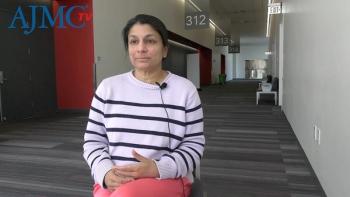
This research on a T-cell–targeting vaccine in HIV has implications for future study design to incorporate consideration of age and years on antiretroviral therapy (ART) to evaluate the level of immune reconstitution.
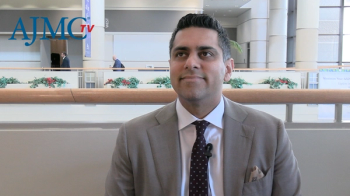
Shawn Kwatra, MD, FAAD, physician scientist at the University of Maryland Medical System, presented data at the American Academy of Dermatology 2025 annual conference on the rapid efficacy of topical ruxolitinib for itch and inflammation, while also outlining a comprehensive approach to chronic pruritus management.

Despite a surge in telemental health use after the onset of the COVID-19 pandemic, minority racial/ethnic group children had lower utilization rates than White children, according to Xin Hu, PhD, MSPH.

Elizabeth Jones, MD, FAAD, Thomas Jefferson University Hospitals, advocates for teledermatology as a vital tool to enhance health care equity by improving access for underserved populations and reducing physician burnout.

Tiffany Meng, PharmD, an oncology pharmacist, UCSF Health, discusses how pharmacists help mitigate financial toxicity for patients with breast cancer.

Brittany Craiglow, MD, FAAD, analyzed the promising use of baricitinib for severe pediatric alopecia areata. She highlighted late-breaking data from the BRAVE-AA-PEDS study (NCT05723198), emphasizing the balance between treatment efficacy and safety.

Lawrence Eichenfield, MD, FAAD, from Rady Children's Hospital and UC San Diego School of Medicine, highlighted the importance of shared decision-making in atopic dermatitis treatment, emphasizing personalized care based on patient history and the favorable long-term safety profile of topical ruxolitinib.

Using artificial intelligence (AI) to help expedite processes for physicians can help them spend more face time with patients and stay up-to-date with the medical literature, says Douglas Flora, MD, FACCC.
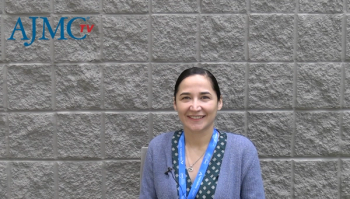
Rebecca Vasquez, MD, FAAD, University of Texas Southwestern Medical Center, emphasizes the necessity of addressing social determinants to improve dermatological care and access for underserved populations.

States must analyze the data on Medicaid and social determinant programs to understand the consequences of how potential policy changes will impact residents, Molly Dean, MSW, Siftwell, explains.

259 Prospect Plains Rd, Bldg H
Cranbury, NJ 08512
© 2025 MJH Life Sciences®
All rights reserved.
